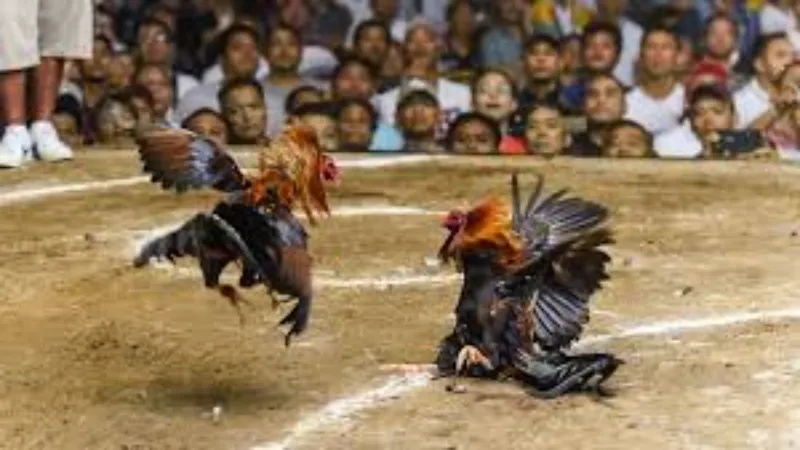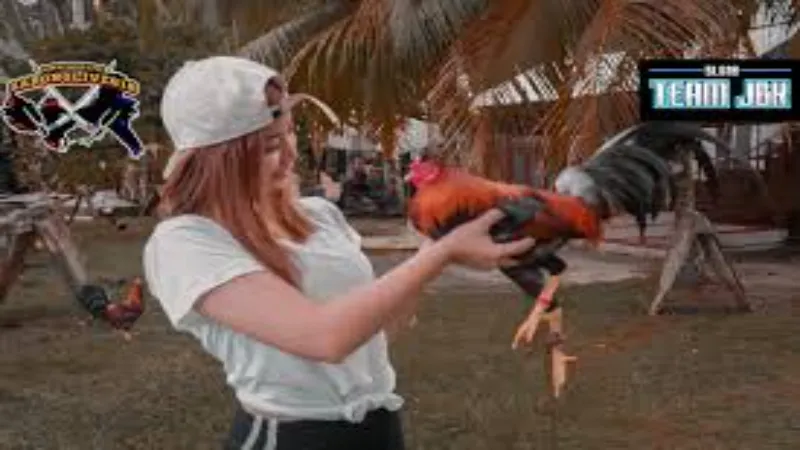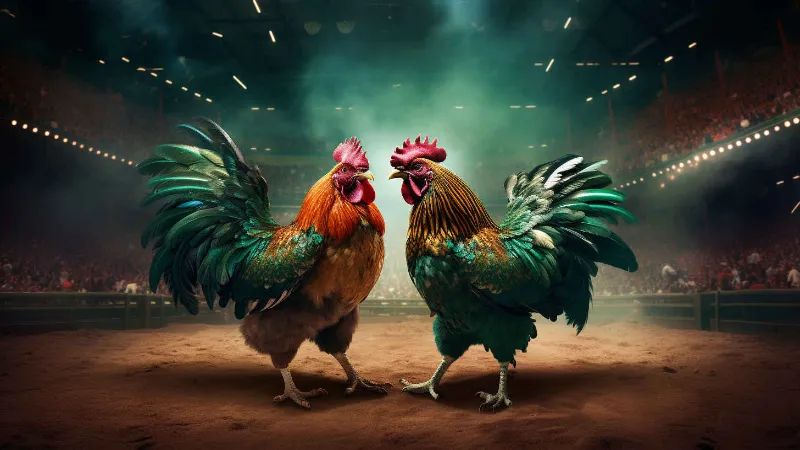Along with the development of electronic technology, especially in the field of science and technology, the form of Sabong Live monitoring has appeared more and more. Live cockfighting, also known as online cockfighting, is chosen by many people and is very popular in countries in the Asian region, including Vietnam. So do you know what Jilievo live cockfighting is?
What is Sabong Live?

Sabong live refers to the live streaming of cockfighting matches, where people can watch the fights in real-time from the comfort of their homes. With the rise of online streaming platforms, it has become easier for people to access sabong matches from anywhere in the world.
The word “sabong” comes from the Filipino term for rooster, “sabong manok.” The sport has a long history in the Philippines and is deeply rooted in the country’s culture. It is often seen as a symbol of masculinity and bravery, with participants training their gamecocks rigorously for months before a fight.
Sabong live streaming allows people to witness the excitement and adrenaline of the matches while also providing an opportunity for bettors to place their bets online. It has become a popular form of entertainment, drawing in a wide audience of both Filipinos and non-Filipinos alike.
History of Sabong Live
The origins of cockfighting in the Philippines can be traced back to pre-colonial times when it was already a popular pastime among the natives. It is believed that cockfighting was introduced to the Philippines by the Malayan traders in the 14th century.
During the Spanish colonization of the Philippines, sabong became even more popular, as the Spaniards saw it as a way to control and entertain the natives. They also brought in different breeds of gamecocks from Europe, which led to the development of various fighting styles and techniques.
In the 19th century, cockfighting was officially recognized as a national sport in the Philippines, with the Philippine Cockfighting Commission being established in 1842. However, it was only during the American occupation in the early 20th century that laws were created to regulate sabong and make it legal. Today, sabong live streaming has made it possible for this traditional sport to reach a global audience, cementing its place in Filipino culture.
Is Sabong Live Legal?

The legality of sabong live varies from country to country. In the Philippines, cockfighting is considered legal but heavily regulated. The Philippine Amusement and Gaming Corporation (PAGCOR) oversees all gambling activities in the country, including sabong. PAGCOR’s regulations state that only licensed operators and breeders can hold cockfighting events, and only in designated areas or “cockpits.”
While sabong is generally accepted and legalized in the Philippines, it is still a highly controversial topic due to its association with gambling and animal cruelty. In other countries, such as the United States, cockfighting is illegal and considered a felony in most states.
Gambling and Sabong Live
One of the reasons why sabong is heavily regulated in the Philippines is due to its connection to gambling. In sabong, spectators bet on the outcome of the match, making it a form of sports betting. This aspect of the sport has been a source of debate, with some arguing that it promotes illegal activities such as gambling and organized crime.
On the other hand, supporters of sabong argue that it is an important source of income for many Filipinos, especially those living in rural areas. Cockfighting events can bring in significant revenues, which is distributed among the breeders, cockpit owners, and government taxes.
Animal Welfare and Sabong Live
Another concern regarding sabong live is the issue of animal cruelty. Cockfighting involves two gamecocks fighting until one of them dies or is severely injured. While gamecocks are bred and trained for fighting, there have been instances of abuse and mistreatment reported.
However, proponents of sabong claim that proper care and training are given to the gamecocks, and they are treated as prized possessions by their breeders. They also argue that cockfighting is a natural behavior for gamecocks and is part of their instinctive nature.
How to Watch Sabong Live Streams

Thanks to technology, sabong live streaming has made it possible for people around the world to watch cockfighting matches in real-time. Here are three ways you can watch sabong live streams:
- Online Streaming Platforms
There are several online streaming platforms that offer sabong live streams, making it easy for anyone with an internet connection to watch. These platforms also allow bettors to place their bets online, making it convenient for those who cannot physically attend the cockfighting events.
- TV Networks
In the Philippines, there are also TV networks that broadcast sabong live, usually during weekends. This is a popular option for locals, and it is a great way to experience the excitement of sabong from the comfort of your home.
- Physical Cockpits
If you happen to be in the Philippines, you can also watch sabong live by visiting a physical cockpit. This is the traditional way of watching cockfighting matches, and it allows you to immerse yourself in the culture and atmosphere of sabong.
Online Sabong: The Future of Cockfighting?
With the rise of online streaming platforms, more and more people are turning to online sabong as their preferred method of watching cockfighting matches. This has led to debates between traditionalists who prefer visiting physical cockpits and those who support the convenience and accessibility of online sabong.
However, many believe that online sabong is here to stay and will eventually become the norm for watching and participating in cockfighting events. It offers an opportunity for people from different parts of the world to experience this unique aspect of Filipino culture without having to travel to the Philippines.
Understanding Sabong Betting

As mentioned earlier, betting is a significant aspect of sabong live, with spectators placing bets on the outcome of the match. Here are some things you need to know about sabong betting:
- Bets are placed before the match begins, and the odds are determined by the breeders based on factors such as the gamecocks’ weight, age, and fighting style.
- There are various types of bets in sabong, including “in-the-gaff,” “off-the-gaff,” and “sidebets.” These bets differ in terms of what is being wagered on, such as the winning gamecock or the number of rounds in the match.
- In some cases, bettors can also make bets during the match itself, called “live betting.” This adds an extra level of excitement and unpredictability to the already intense atmosphere of sabong.
While betting is an integral part of sabong, it is essential to remember to gamble responsibly and within your means. Like any form of gambling, sabong betting can be addictive, and it is crucial to practice self-control and discipline.
The Ethics of Sabong Live
The legality and morality of sabong live have been a topic of debate for many years. On one hand, supporters argue that it is a traditional sport deeply ingrained in Filipino culture and provides a source of income for many. On the other hand, critics condemn it as a form of animal cruelty and illegal gambling.
The truth is, like any other form of entertainment involving animals and gambling, there are ethical considerations to be addressed. While the Philippine government has taken steps to regulate sabong and ensure the safety and well-being of gamecocks, there have been instances of abuse and mistreatment reported.
It is essential for both supporters and critics to acknowledge these concerns and work towards finding a balance between preserving traditions and ensuring animal welfare. Efforts should be made to promote responsible breeding and training practices and enforce stricter rules and regulations to prevent illegal activities related to sabong.
Alternatives to Sabong Live

For those who have ethical concerns about sabong live, there are alternatives for entertainment that do not involve animal cruelty. Here are some suggestions:
- Traditional Dances: The Philippines is known for its vibrant and colorful traditional dances such as the Tinikling and Singkil. These dances celebrate local folklore and are a great way to immerse yourself in Filipino culture.
- Street Food: One of the best ways to experience a country’s culture is through its food. The Philippines is home to a variety of delicious street food, from skewered meats to sweet desserts.
- Festivals: The Philippines is known for its lively and colorful festivals, such as the Sinulog Festival and Ati-Atihan Festival. These events showcase the country’s culture and traditions through music, dance, and food.
While these alternatives may not have the same level of popularity as sabong, they offer a glimpse into the rich and diverse culture of the Philippines without promoting animal cruelty.
Conclusion
Sabong live is a unique aspect of Filipino culture that has been around for centuries. It is a sport that has its roots deeply ingrained in the country’s history and traditions, and it continues to draw in a wide audience both locally and globally.
While sabong live has its share of controversies and ethical concerns, it is essential to understand and respect the cultural significance of this traditional sport. Efforts should be made to ensure the well-being of gamecocks and promote responsible practices within the industry.
We hope that this guide has given you a better understanding of sabong live and answered any questions you may have had about this fascinating aspect of Filipino culture. Whether you choose to watch sabong live or explore other alternatives, we hope you will continue to immerse yourself in the rich and diverse culture of the Philippines.
